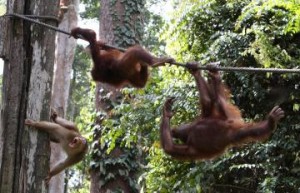Diversitas, Paris
17-Feb-2011
How should a new ‘IPCC for biodiversity’ work? Leading world scientists offer prescription
In the journal Science this week, leading scientists say the new “IPCC for biodiversity” should offer practical scientific assessments of actual policy options confronting decision makers.
“Hypothetical scenarios bear no relationship to the real options confronting policy makers now,” argues Charles Perrings, Professor of Environmental Economics at Arizona State University, co-author of the paper with Prof. Hal Mooney of Stanford University, Anne Larigauderie, Executive Director of Paris-based DIVERSITAS, and Anantha Duraiappah, Executive Director of the International Human Dimensions Program on Global Environmental Change, based at the United Nations University’s offices in Bonn.
In their article, the scientists also urge that IPBES assessments pay “at least as much attention” to social sciences as to natural sciences – estimating, for example, the value of ecosystem services in economic terms to help societies make better-informed development choices. Economists recently estimated, for instance, that an average hectare of coral reef provides services to humans valued at US $130,000, and in some places as much as $1.2 million, per year.
Full news release text, click here
Coverage summary, click here
Example coverage by Reuters, click here
